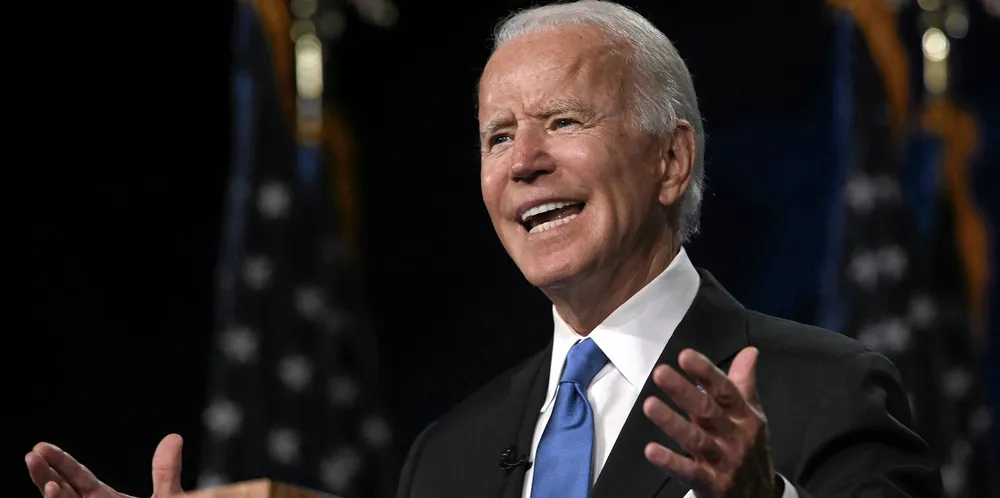US rejoins Paris climate pact with promise to tackle 'global existential crisis'
President Joe Biden tells European security conference America will lead renewed efforts to slow global heating, with new more ambitious targets to be revealed on Earth Day in April

America officially returned to the global Paris climate agreement today (19 February) with US President Joe Biden and senior administration officials vowing to address the issue with purpose and deliver results in meeting emissions reduction commitments.
Green is the new black. Subscribe to Accelerate
Get the market insight you need into the global oil & gas industry's energy transition – from the new newsletter from Upstream and Recharge. Sign up here
“We’re back,” Biden said by video in a speech to European leaders at a Munich security conference. “We can no longer delay or do the bare minimum to address climate change. This is a global existential crisis and all of us will suffer if we fail.”
Biden’s predecessor Donald Trump withdrew the US from the accord in 2017 saying it imposed draconian financial burdens on the American economy, was an economic defeat for its workers and gave too many advantages to other nations such as China.
On his first day in office on 20 January, Biden signed an executive order for the US to rejoin the 2015 pact, a process that took 30 days.
The pact requires the 197 signatory nations to take actions that seek to limit the planet’s warming to less than two degrees Celsius above pre-industrial levels, and then a 1.5 degree warming limit.
The US Paris pledge is to reduce its greenhouse gas emissions (GHGs) by 26% to 28% from 2005 levels by 2025.
The country has achieved about a 21% reduction so far, partly due to the historic Covid-induced shock to the domestic economy last year that resulted in a post-World War II record 10.3% emissions decline, according to independent researcher Rhodium Group, which cautious that emissions will likely rise as activity accelerates along with availability of vaccines.
Biden and John Kerry, his special envoy for climate, said efforts by the US and others must go beyond Paris commitments. “We know that just doing Paris is not enough. If every country delivered, we would still see a warming planet Earth,” said Kerry. The White House is working on a new, more ambitious target that it will unveil on Earth Day 22 April.
While symbolic, the US return to the agreement was the easy part. Now Biden will need to make good on his pledges to show the world that his administration is serious about placing the country on track to reach net-zero greenhouse gas emissions by 2050, which is consistent with Paris.
That will require a multi-pronged effort across the federal government directed toward the main emission sources: agriculture (10%), commercial and residential (12%); electricity (27%); industry (22%) and transportation (29%).
A big headline goal is to decarbonise the electric grid by 2035. Renewables now account for only 11% of the country’s primary energy consumption, unchanged during Trump’s tenure.
Biden is promising to invest $2tn in his four-year term as a down payment toward US climate commitments but will need Congress to appropriate the funds. A bill for half this amount is under discussion in both houses where his Democratic Party holds thin majorities.
(Copyright)